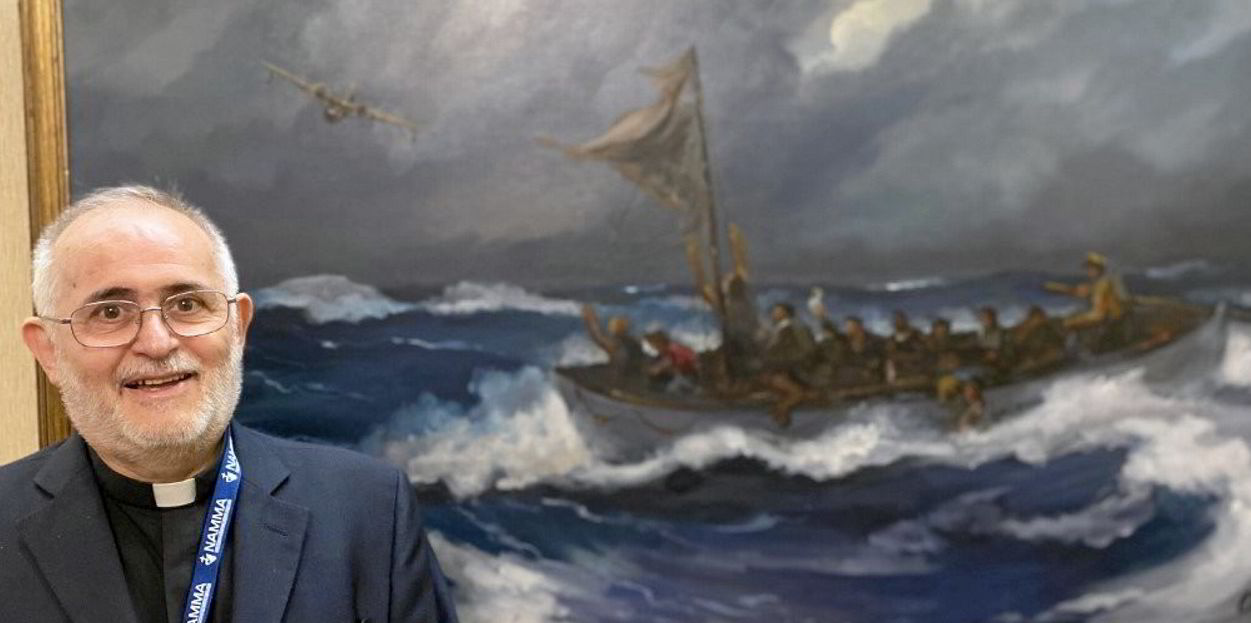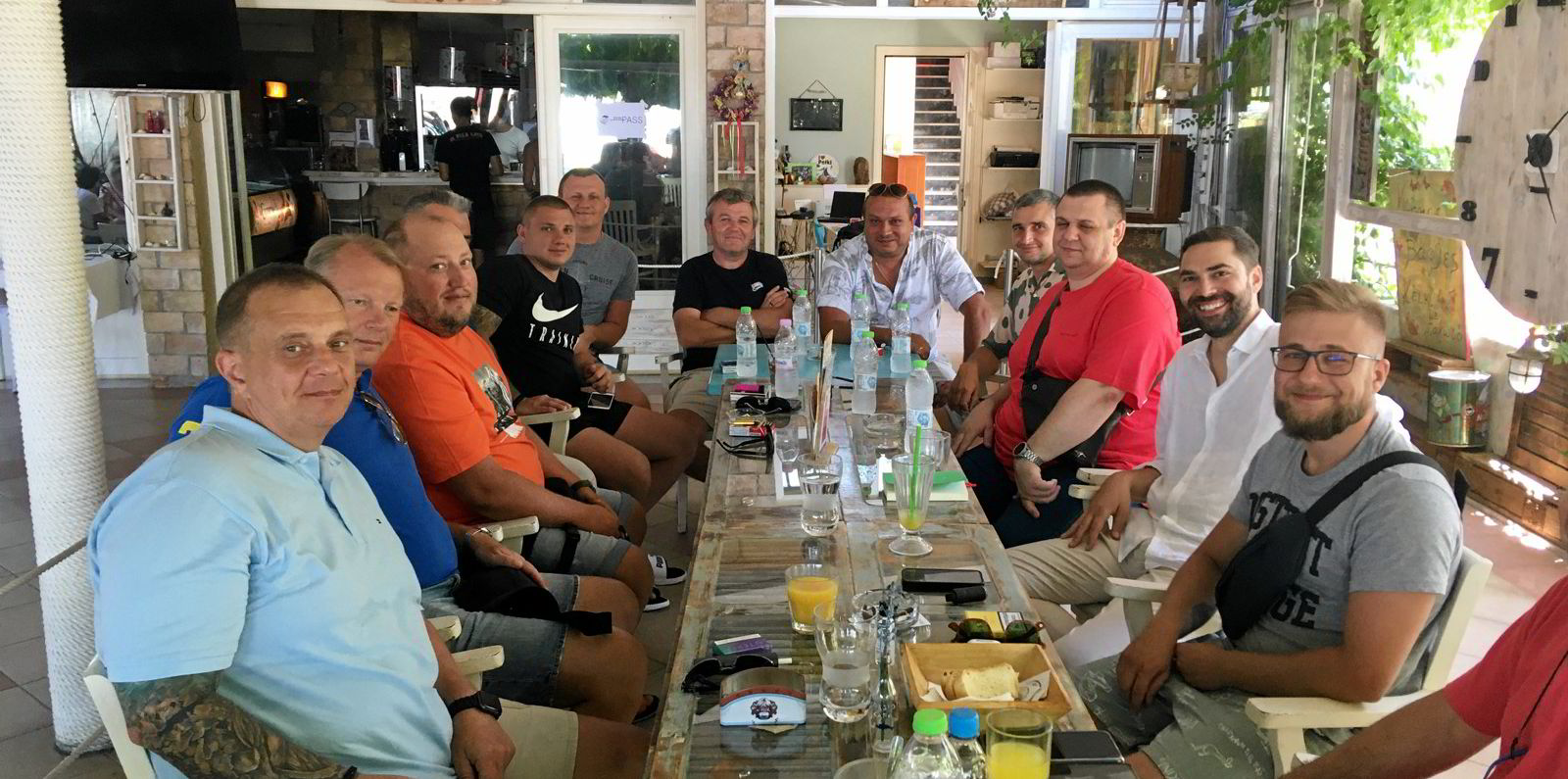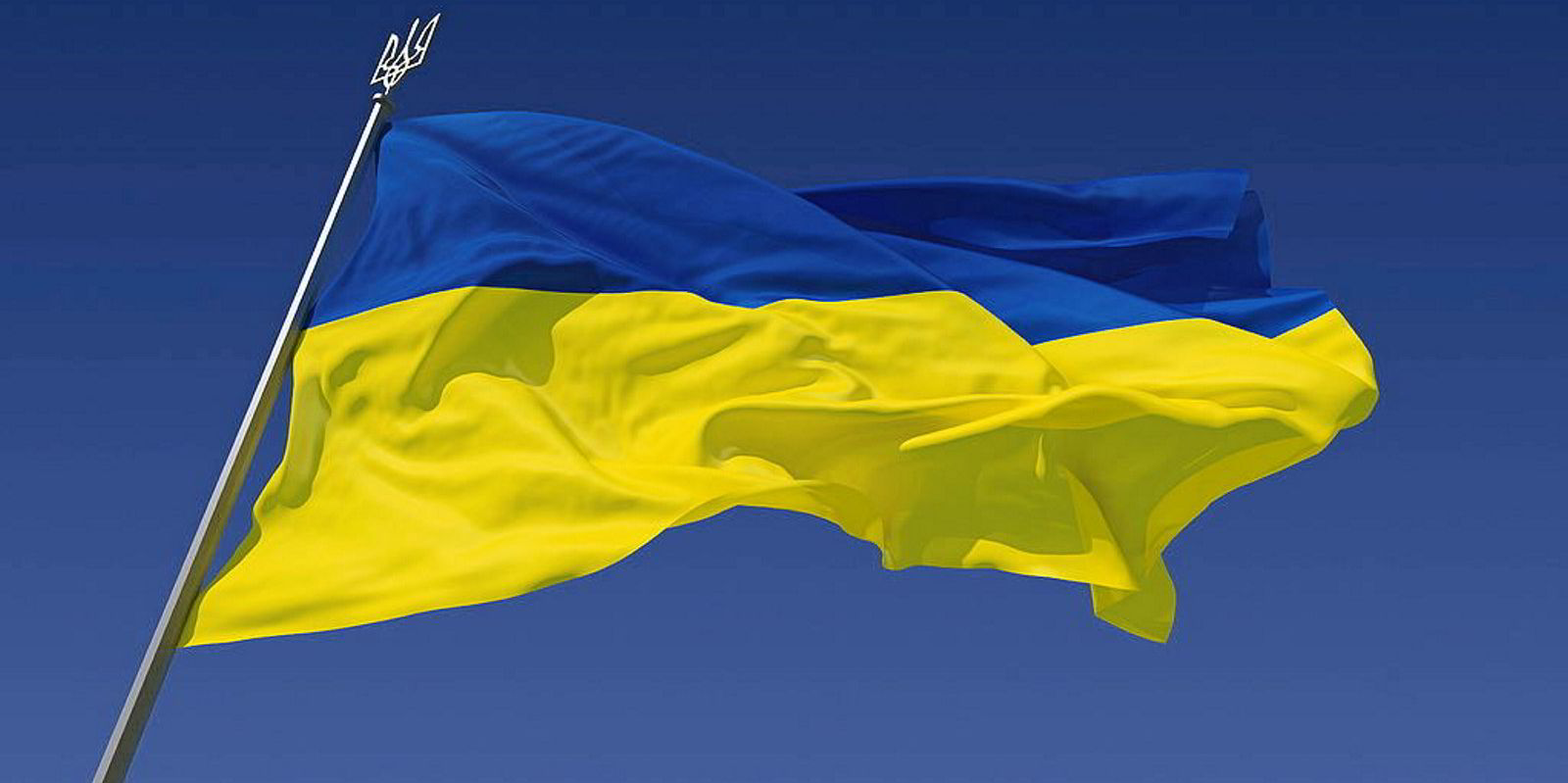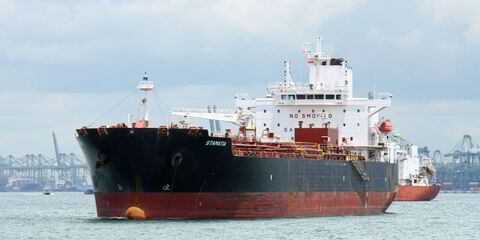Ukrainian seafarers and their families have found refuge from Russia’s invasion at a Stella Maris recreation centre in Poland.
Fifty-five people, 18 of them children, have made their way to a resort maintained by the Catholic maritime ministry in the Kashubia region, near Gdynia on the Baltic coast.
“We rely, really, in the providence of God, and until now we are able to support them,” Fr Bruno Ciceri, Stella Maris’ international director, told TradeWinds during the North American Maritime Ministry Association conference outside Baltimore last week.
“At the beginning, when they arrived, they didn’t have anything, so we have to provide them [a] package with everything. And then for the children, you had to provide also toys to play with, all these kinds of things.
“Also, we provide some psychological support … that’s what we have done and we will continue to do.”
The facility in Poland has 41 beds and recreational facilities, with hiking trails and a lake nearby. It was built in the 1990s in conjunction with the International Transport Workers’ Federation, and Ciceri said his organisation identified the site early on as a place to house refugees.
He said the war blurred the lines of whom Stella Maris should serve, and chaplains and staffers could not pick between seafarers and non-seafarers.
The resort is home to everyone from young children to the elderly, bringing with them pets and whatever they could grab.
“People [there], they feel safe. It’s peaceful,” he said. “Especially at the beginning, they said for them it was strange because they were used to bombing, alarms and things like that. There was silence.”
Ciceri said many want to go home. Some children have been enrolled in a local school and others in online, Ukraine-based schools.
It costs about $5,100 per month to support the 55 living there, but so far the organisation is making it work.
“We are committed to them. We never ask when they want to go back. We will welcome them as long as they want,” Ciceri said.
“I’m sure God will be with us and continue to assist us and these people as long as they need.”
In Ukraine
In Odesa, Stella Maris Ukraine national director Fr Olkesandr Smerechynskyy and his assistant Rostyslav Inzhestoikov kept visiting the Black Sea port as long as possible, Ciceri said.
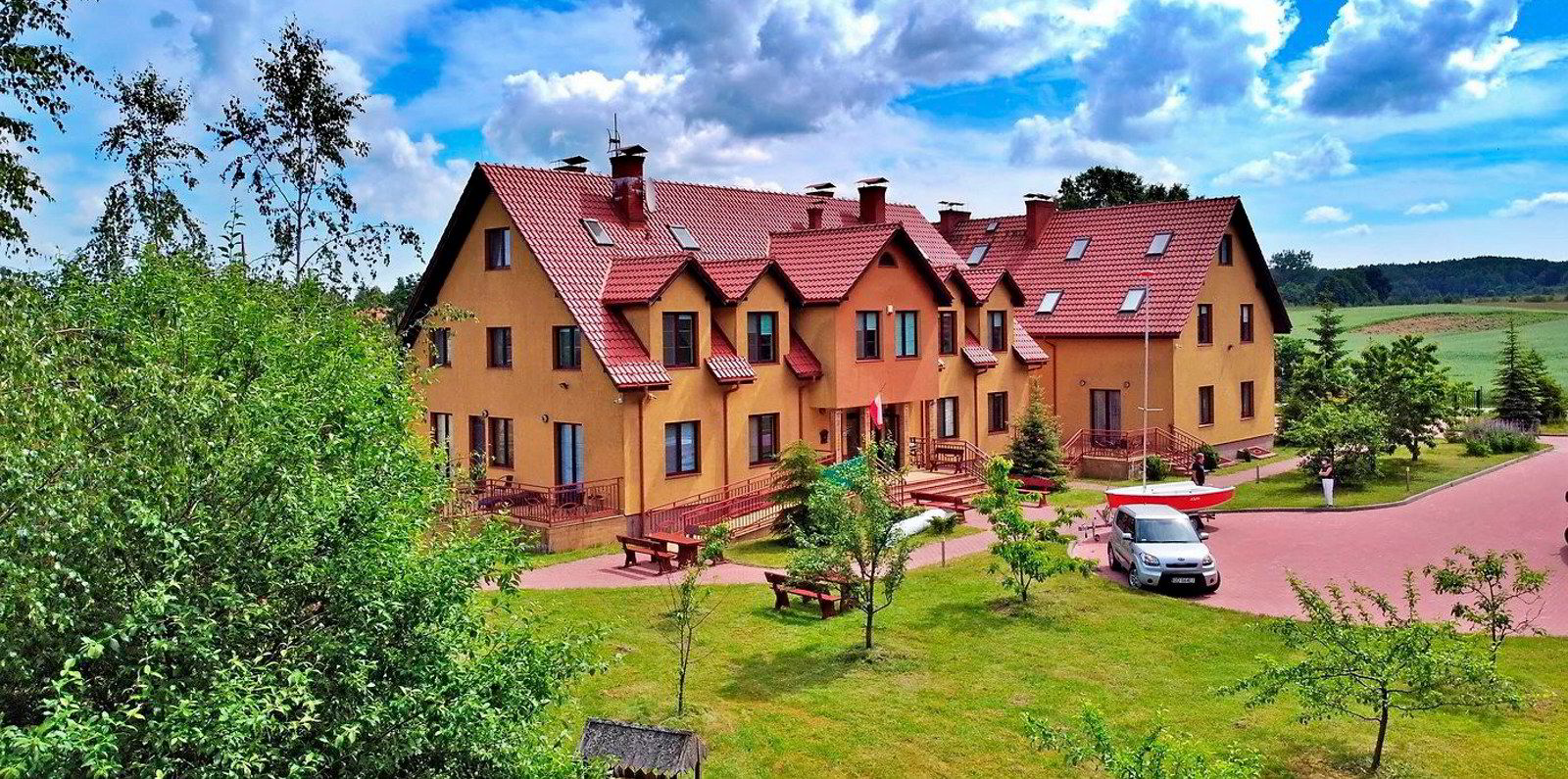
Once martial law began preventing visits, the two started working with the Red Cross.
Much of their work centred around helping Ukrainian seafarers access hardship grants, a major need for seafarers and a high priority for welfare organisations.
“What they were saying to me is, ‘Bruno, for us it’s very difficult. Sometimes we have to play God with these people. They come to us for assistance. I have to say: Yes, I recommend this application; no, I don’t recommend this application’,” Ciceri said.
“I don’t think it’s an easy choice for them, but they have to do it.
“They have to decide to give $500 to a person, to a family. That $500 can make a difference. It’s really a difficult thing.”
